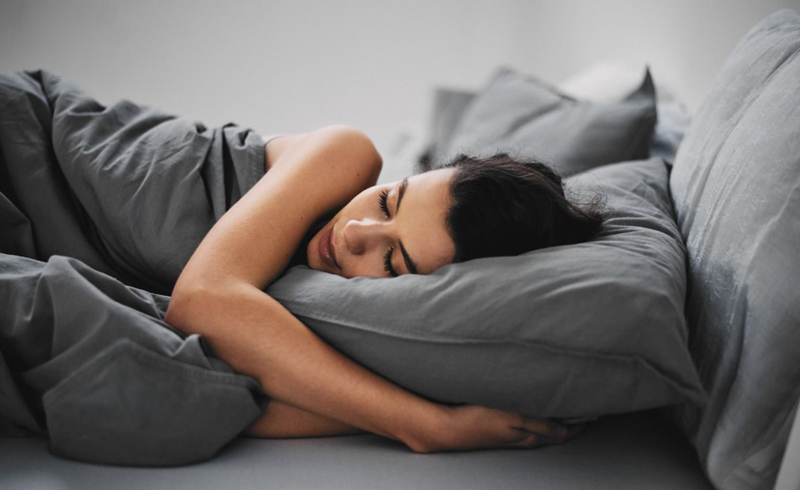
Do you wake up feeling exhausted even after getting plenty of sleep? Odds are the quality of sleep isn’t the problem — it’s the quality. Not all sleep is the same. Tossing and turning for eight hours doesn’t measure up to a restorative shut-eye. You can spend all day in a foggy haze despite supposedly getting enough sleep. Fortunately, there’s a solution to these woes: sleep hygiene.
Sleep hygiene is a set of techniques for improving sleep quality and daytime alertness. While the name sounds fancy, all it refers to is building proper sleep habits. Sleep is so important in preventing sickness, reducing stress, boosting memory and helping the body repair itself. It’s little surprise there is so much science around sleeping well.
Amidst all the goal-building of the new year, many people are talking about snoozing their way to success. That can be easier said than done when you struggle with insomnia, anxiety and other conditions keeping you up at night. We combed through research from the National Sleep Foundation and the CDC to discover top sleep solutions. Here’s how to improve your sleep hygiene.
1.
Make your space a sanctuary.
Ideally, where you sleep should be an oasis from the stresses of everyday life. Make sure your mattress and pillows are comfortable. Keep your bedroom a little chilly (between 60 and 67 degrees) for optimal sleep, according to the National Sleep Foundation. Turn off bright lights from lamps, phones, TVs and other electronics. Adapt these guidelines to your living situation. If your roommate is a night owl, you might want to buy a sleep mask. You could block out noisy neighbors with blackout curtains and ear plugs.2.
Establish a bedtime routine.
Find out what makes you zen, then complete that routine every night. By repeating the same habits before you fall asleep, you will train your body to recognize it’s bedtime. To implement this technique, you could add a self-care corner to your space. Place candles, dark chocolate, face masks and whatever else blisses you out near your bed. You’ll be reminded to do your bedtime routine, whether that means reading a book, taking a shower or doing some yoga.3.
No more binge-watching Netflix in bed (although we understand the temptation!)
It’s easy to spend way too much time lounging in bed, especially if you work from home. But bringing daytime activities into bed confuses your body. You become used to reading, watching Netflix, composing emails and more in bed. That means lying awake at night can feel natural, since you already spend so many waking hours in bed anyway. To fix this, try only hitting the pillow when it’s time to snooze.4.
Steer clear of screens right before bed.
The Internet is invigorating! There are endless articles to read, videos to watch and exes to check up on. Social media apps tap into the same neural circuitry used by slot machines and cocaine to keep us hooked, according to Harvard Medical School. Scrolling through Instagram gives a hit of dopamine that encourages people to keep going. To really wind down, consider disconnecting. Reading a book right before bed leads to deeper sleep and significantly better retention. So if you’re looking to memorize new information and snooze more soundly, it’s time to hit the books (out of bed, of course).5.
Limit your daytime naps to thirty minutes.
Naps don’t replace adequate nighttime sleep, but they can give you the burst of energy you need to get on with your day. Limit your naps to 20 to 30 minutes if you want to optimize your mood, alertness and overall performance. That hour-long nap may seem like a good idea at the time, but you’ll probably wake up feeling groggier than ever.6.
Work on your fitness.
Working out is about more than just toning your physique, boosting your mood and improving your cardiovascular health. Those sweat sessions also work wonders for sleep. As little as 10 minutes a day of cardio can dramatically help improve your sleep. Check out these lazy girl fitness tips for some inspiration.7.
Watch what you eat immediately before bed.
You probably already knew a cup of coffee right before bed isn’t a good idea. But rich foods, spicy dishes, citrus fruits, carbonated drinks and fried meals also disrupt the body’s natural sleep cycle. If you have the midnight munchies, no worries! Snack on some slumber foods like scrambled eggs, a peanut butter sandwich, yogurt, an apple or a bowl of cereal. These specific snacks help the body produce more serotonin, a chemical in the brain that helps with sleep.8.
Try meditating.
If racing thoughts are keeping you up at night, daily meditation could be the answer. Apps like Headspace and Slumber have guided meditations to help quiet your mind. If you’re feeling extra fancy, you can track and analyze your sleep with Sleep Cycle.9.
Soak up some sun.
Getting sun during the day and darkness at night helps the body maintain a healthy sleep-wake cycle. Scientific lingo aside, what this means is sunlight signals your body should be awake while darkness tells your body it’s time to go to sleep. Spending all day in limited light can confuse your body and disrupt your sleep-wake cycle. So try to catch some rays.10.
Snag some sleep products like a diffuser or a meditation pillow.
We rounded up Amazon products below for a deeper, more restorative sleep. Scoop up sleep spray or a white noise machine to get snoozing stat.See more at: more.com
![[feature] What is Sleep Hygiene, and Why Does it Matter?](https://blogger.googleusercontent.com/img/b/R29vZ2xl/AVvXsEhXmIHhIfo2eoKgOzpFUBPY6XIpblGYnoSD6ibDw-0bufirNInJLc9esVsWmNmjlHIEBShSYTbqggyUX6scME7x_lOpo8ZV0a2Th3HCNd4Xi58jSW5S0yE7ZGaa_awI-7pGF1-mk6wFWv8/s1600-rw/women+4.jpg)























